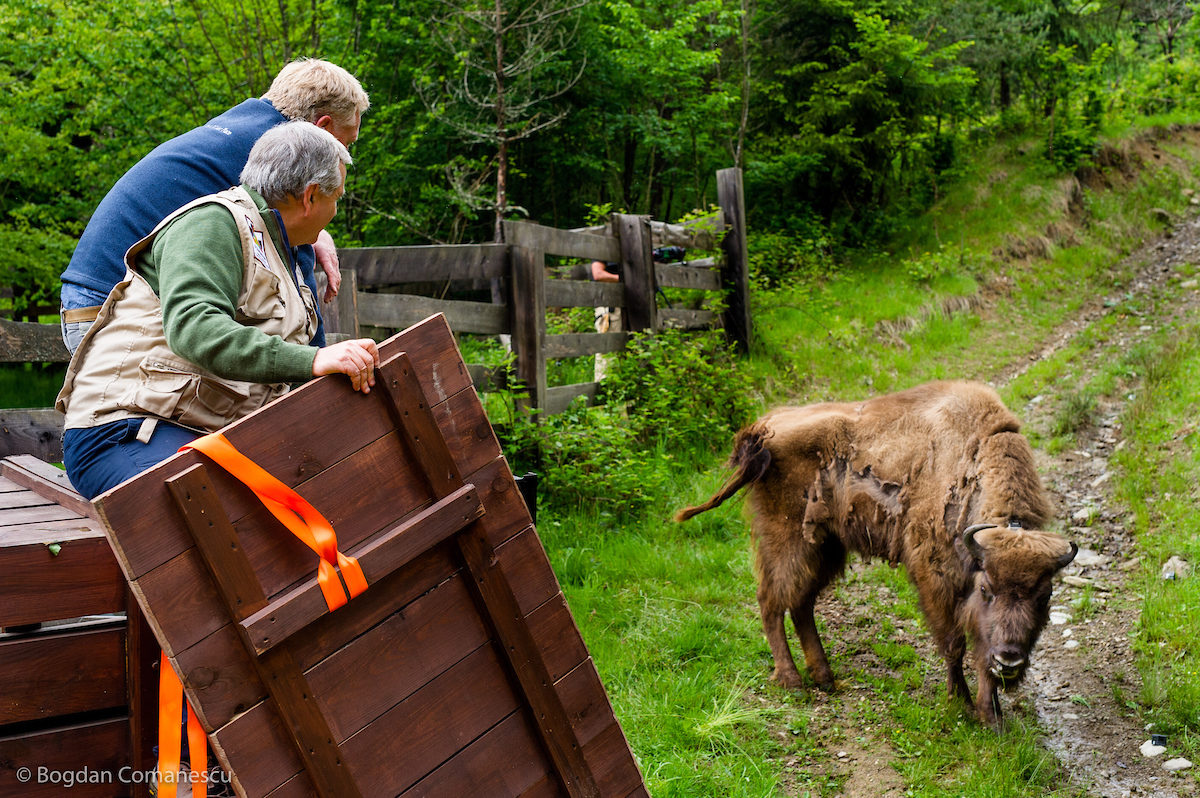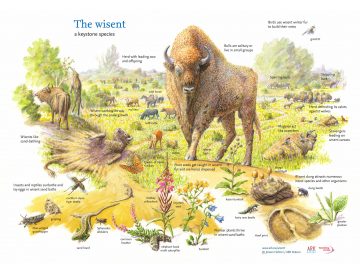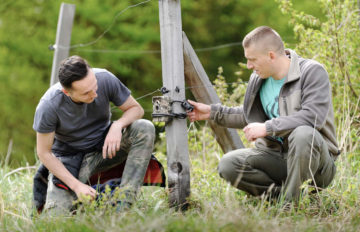Rewilding Intros are mini-webinars that allow European Rewilding Network members to introduce themselves. September’s Intro, which was open to the public for the first time, saw participants learn about bison rewilding in the Southern Carpathians of Romania.

Scaled up support
Taking place in September, the second Rewilding Intro of the European Rewilding Network (ERN) saw 65 participants from across Europe – including, for the first time, members of the public – gather together online to learn more about bison rewilding in the Southern Carpathians.
Launched in June, Rewilding Intros are 30-minute mini-webinars that allow ERN members to share their stories and expertise, which in turn helps to improve rewilding outcomes. Going forwards, all Rewilding Intros will be open to the public, with participation limited to 100 people per webinar.
“This time round we had around 45 members of the public taking part, which is really great to see,” says Mei Elderazdi, Rewilding Europe’s ERN Coordinator. “Going forwards these webinars will not only help network members to promote and develop their rewilding efforts, but scale up understanding of and support for rewilding amongst wild nature enthusiasts.”
Return of the bison
Led by the Southern Carpathians rewilding team, participants in September’s Intro were taken on a virtual trip to southwestern Romania. They learned about the challenges and success stories experienced by Rewilding Europe and WWF Romania as they have worked to reintroduce European bison here since 2013.
The first two bison releases took place in the Țarcu Mountains (part of the Southern Carpathians) in 2014 and 2015. In June 2016, a third bison release took place as part of the European Commission-funded LIFE Bison initiative, with annual releases now ongoing. With more than 60 animals now roaming free in the Southern Carpathians rewilding area, the two partners are well on their way to establishing a wild bison population that is demographically and genetically viable.
Beneficial impact

European bison are a keystone species which have a large impact on the landscape, allowing many other species of flora and fauna to thrive through their grazing, browsing and other interactions with the local habitat. In the Southern Carpathians rewilding area, the return of these magnificent animals is also driving socio-economic development, with rewilding-related efforts involving nature-based tourism, community-based and educational initiatives, scientific research and technological innovation.
“Every bison reintroduction and every birth in the wild is a success for the conservation of these vulnerable animals,” says Southern Carpathians rewilding team leader Marina Drugă. “Going beyond this, these animals can benefit local wild nature and people in so many different ways. In this regard, they are more than a keystone species here.”
Keeping track

Matei Miculescu, one of the bison rangers working in the Southern Carpathians rewilding area, joined the webinar via video link. He spoke about the importance of bison monitoring and what his work involves.
Bison rangers continually keep track of wild bison herds of the rewilding area through GPS signals, camera traps and thousands of hours spent in the field. The data collected through GPS collars is essential for analysing the behaviour and environmental impact of the bison, enhancing their conservation, and ensuring harmonious relations between bison and local communities.
Community support
Reaching out to and gaining the trust and support of the local community has been vital to the successful reintroduction of European bison into the Southern Carpathians. Bianca Ștefănuț, a communications officer attached to the Southern Carpathians rewilding team, also spoke to webinar participants about how the team is building long-term relationships with residents, enhancing human-wildlife coexistence, and boosting nature-based tourism in the area.
Bianca played a short animated video which is used to educate people how to behave when they encounter a European bison in the Southern Carpathians rewilding area. She also played a trailer for “Zimbrul“, a beautiful documentary film shot by award-winning French filmmaker Emmanuel Rondeau in 2019. An intimate snapshot of people’s feelings about the return of this iconic species, the full documentary is well worth a view.
Public engagement
There were many questions from the audience at the end of the webinar. Mini-webinars only allow five minutes for questions, so some were answered by the rewilding team via e-mail. The entire webinar can be viewed on Rewilding Europe’s YouTube channel.
The next Rewilding Intro will be held at the end of October, where the Auerrind Project – which is focused on natural grazing, back-breeding and scientific research on aurochs (an extinct species of large wild bovine) – will present their work. An invitation to the event will be shared through Rewilding Europe’s social media channels.
Apply for ERN membership
Today rewilding is gaining momentum as a progressive and effective approach to conservation in Europe. Underpinning this trend, the burgeoning European Rewilding Network (ERN) continues to foster collaboration and amplify results.
Founded by Rewilding Europe in 2013, the aim of the ERN is to enhance the efforts of each member by facilitating the exchange of skills, insight and experience. Members meet regularly, usually via webinar, while nature-based businesses can also apply to Rewilding Europe Capital, Rewilding Europe’s enterprise loan facility.
The criteria for ERN membership were revised at the end of 2019, as the network shifts its focus from expansion to support for practical, result-oriented rewilding. Rewilding Europe extends a warm welcome to all European rewilding initiatives and encourages them to apply for ERN membership.
Want to know / experience more?
